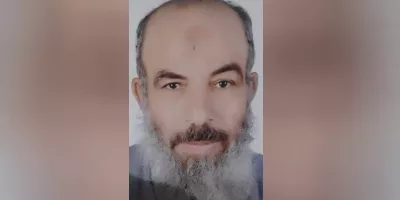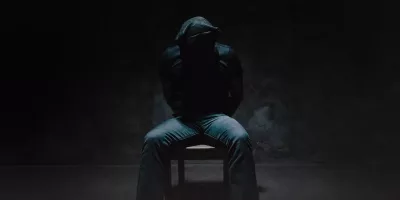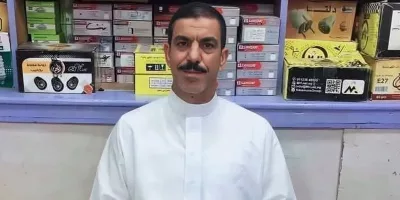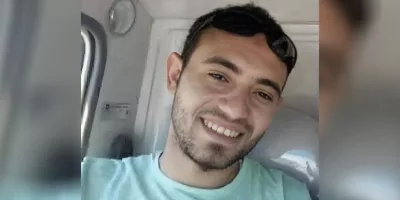Geneva 5 October 2017
Egypt Project: Detention Watch
The Committee for Justice is publishing report “We are dying, everyday” Treatment and detention conditions of political detainees in Wadi Natroun Prison.
Wadi Natroun Prison 440, hereinafter referred to as “Prison 440”, is one of three prisons in “Wadi Natroun Prison Area” near Sadat City, in Behira Governorate. The prison consists of 12 wards, each consisting of 18 cells. Wards No. 1 to 11 constitute the detention cells, and ward No. 12 has special purpose cells.
Information that are included in this submission were based on two resources, 1. Interviews with 8 families of political detainees[1], and an interview with a former detainee in prison 440, those interviews were conducted during August and September 2017, 2. Three letters were written by three political detainees and were leaked to the press and social media.
The information was divided into four different sections:
- Violence against detainees
Political detainees in ‘Wadi Al-Natroun Prison 440’ have a long history of resorting to hunger strikes to demand humane treatment and proper medical care. However, be it the hunger strikes in 2016, March and April 2017, or July and August 2017, their demands were never met.
The last hunger strike was brought on by multiple incidents of violence committed against three political detainees in ward no.2, Saeed Abdel Halim, Abdel Rahman Ghareeb, and Hamid Kamal, after an argument with criminal detainees that led to a fight resulted in beating the political ones. Later the whole detainees of ward no. 2 were punished through confiscating their belongings without conducting any investigation in the matter. The three doctors who involved in the fight were taken away from the ward, beaten, and placed in solitary confinement for more than 25 days by the prison guards. This incident led to 80 political detainees beginning a hunger strike on the 5th of July 2017.
According to the informants, separating political detainees and placing them with criminal detainees is a method used by the prison administration to punish political detainees. Political detainees ask their families for money to pay to the criminal ones to not harm them. It was known also to the CFJ that some of criminal detainees in Eunboka[2] cells work as informants who watch every move of the political detainees and convey it back to the Investigation Office in prison every morning.
Another violence attitude happens repeatedly during the time a detainee spent in Eunboka cells, that a detainee had his hands tied behind him to a lamppost in the sun on one early morning till sunset, wearing only a pair of shorts. Detainees also were tied to a lamppost and any guard passing by would beat them. Ahmed Shaban a 20-year-old student reportedly suffered the same treatment alongside Ahmed Mandour a 23-year-old college student.
- Detention conditions
In letter no. 2, the detainee refereed to Wadi Natroun Prison 440 as Hell Valley 440. The information CFJ got said that in wards No. 2, 8, or 9 are routinely overcrowded, with each cell holding between 22 to 27 detainees. There is no room in his cell so a detainee has to sleep on his side and can’t move. In letter No. 2, the detainee wrote that each detainee only gets 48 cm for himself in the cell. Plus, detainees are kept in dirty cells that are filled with insects and cockroaches.
“There were a lot of people suffering from skin allergy and tuberculosis because the place doesn’t allow for cleanness. To properly clean a cell, you will have to get all the detainees out of it for a period of time and clean it and that just wasn’t going to happen. The blankets are rarely if ever aired out in the open. It is only allowed if the Head of Investigation says so, and he almost never does. Back in 2016, the detainees would spend 23 hours and a half in their cell that has no bathroom and only allowed out of it for half an hour each day to pee” The former detainee informing the CFJ.
- Medical Negligence
A better medical care in the prison has always been a staple in the detainees’ demands whenever they were on a hunger strike.
Sick detainees aren’t contacted by the prison’s hospital, and that the prison’s hospital itself has no doctors except a medical student with no expertise or knowledge to deal with the varying illness and health problems that people suffered from in prison. Families of sick detainees are forced to external doctors and explain the relative`s condition so the doctor can blindly examine and prescribe the medicine. It is not only that blind examination may worsen the condition but also giving the medicine to the detainee in the prison is not easy and not accepted by the prison’s administration.
There is also a complete disregard for providing mental health care to the detainees. For Omar Mustapha, who suffered from bipolar disorder and depression before his arrest, all his prescribed medicine for his condition is not allowed into prison. There are also no specialized mental health doctors who come to the prison.
- Visits management and allegations of bribery
Usually, families of detainees witness how violently their relatives are treated by the end of the visit. A detainee may be pulled by his shirt, that caused a great stress to the families. A woman witnessed once yelling at an officer not to pull her husband with such violence. This angered the officer, and he slapped the woman. Forces were called into the prison after the detainee shoved the officer away and made him fall down. The forces led all the remining visitors outside, and then a large group of the forces started beating that detainee. The visits time shrunk to only half an hour as punishment against the detainees for going on strike. Families are forced to pay Bribers to whoever is conducting the food and items search in the visit or decides what enters the prison.
Conclusion and recommendations
CFJ was recently informed that Tamer El Dousky, the Head of the Investigation Office in Prison 440, has been relocated to a different prison. Although the CFJ welcomed the decision, it is important to know that according to those press reports 1 and 2 , from June 2014 and July 2015, the problems in Prison 440 are ingrained in the way the prison is run to the point that it is highly unlikely to change under a new Head of Investigation.
CFJ calls upon the Sadat Prosecution office, Prison Affairs body, and Wadi Natroun Prison Area Inspector to:
- conduct a proper investigation into the incidents listed in this report
- pursue legal action against the perpetrators
- provide the Prison 440 staff with proper training for handling detainees
- combat the ingrained problems in their handling of situations arising in prison.
CFJ also implore the current prison administration and the new Head of Investigation in Prison 440 to:
- preserve the rights of their detainees – that are protected in the Egyptian constitution and international human rights treaties – by refraining from punishing the detainees in any cruel or unusual way.
- improve the detention conditions in the wards, and to provide the detainees with proper medical care whenever needed.
[1] The names of some the detainees have not been disclosed due to requests by their families out of fear of future reprisal against the detainees in prison.
[2] “Eunboka cells are for detainees who are coming into the prison for the first time, returning from a different prison where they took their exams or were being treated in a different prison’s hospital. The cell is 10 by 4 meters and has from 30 to 40 detainees in it daily. Detainees can be imprisoned in it from 9 to 60 or even 90 days. Sometimes, it could last for a year or even two. The cell has no heater for food and no bathroom. It only has two buckets, one for peeing and another for washing (which is filled with water once a day at 7 a.m.). The lighting in the room is from a small yellow bulb in the middle of the room. Continuing to be subjected to this lighting for more than a week weakens the eyes and eyesight….” Letter no. 3






